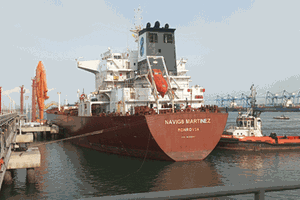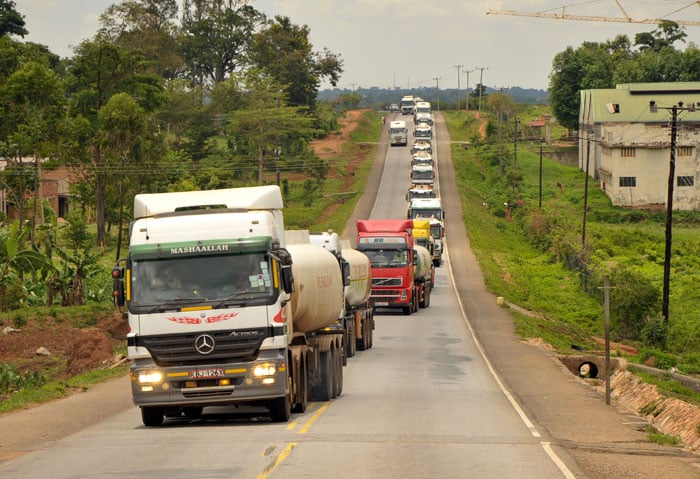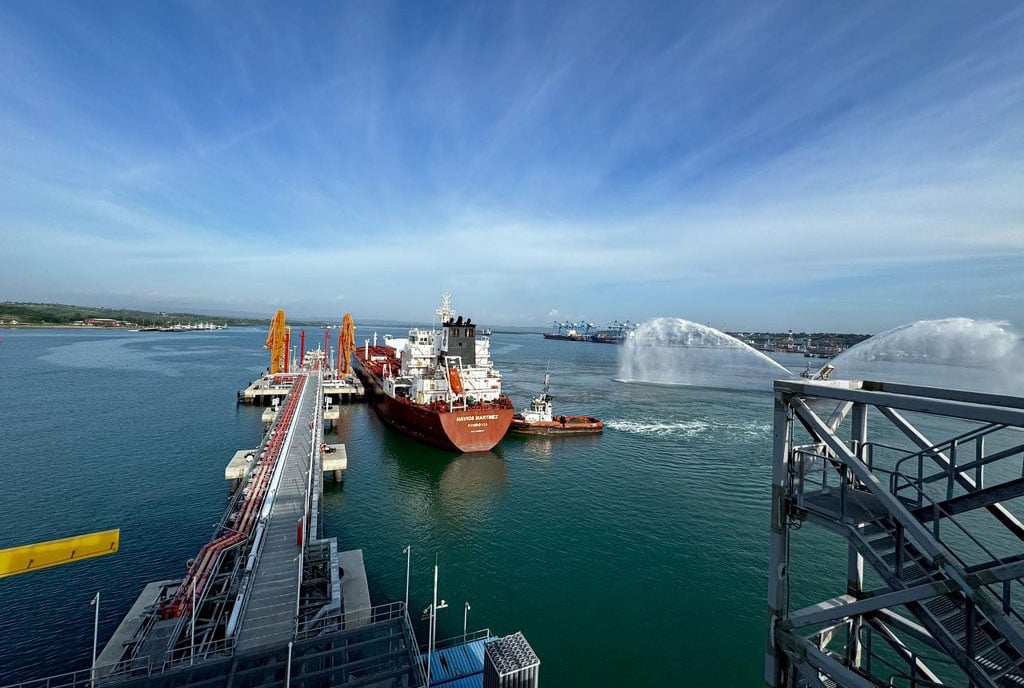
Fuel pump prices at Shell Mulago in Kampala as of July 07, 2023. Analysts say the pump price of both petrol and diesel are widely expected to shoot up. PHOTO | MICHAEL KAKUMIRIZI
Uganda has failed in its bid to lower prices of petrol and diesel in Kampala through a deal to directly purchase fuel from oil and commodities giant Vitol Bahrain.
This is after diesel price in Kampala jumped this week to $1.38 per litre from $1.37 while that of petrol rose to $1.47 from $1.46, meaning that Kampala has overtaken Nairobi as the city with the costliest fuel in East Africa.
In Nairobi, a litre of diesel is going for $1.32 and $1.45 for petrol.
President Yoweri Museveni last year said that the deal with Vitol Bahrain would help lower pump prices in Kampala, by cutting off “middlemen in Kenya,” adding that they (the middlemen) in Kenya’s government-to-government deal with three Gulf oil majors were responsible for inflating fuel prices in Uganda.
Uganda National Oil Company (Unoc) signed a five-year import deal with Vitol Bahrain and the first shipments of petrol and diesel landed early this month, and are the ones currently being sold in the Ugandan fuel market.
The deal with Vitol offers Uganda a bigger say in determining fuel prices in Kampala, given that Unoc has negotiated premiums and freight with Vitol Bahrain. However, unexplained high pipeline and logistics charges by Unoc are some of the factors behind the high pump prices.
“Why not buy from the refineries abroad and transport through Kenya and Tanzania, cutting out the cost created by middlemen?” President Museveni said in November last year when he publicly announced that Uganda would end reliance on Kenya’s fuel importation structures.
“We have now contracted bulk and refinery suppliers able to give us lower prices,” he said.
Last month, a litre of diesel and petrol went for $1.37 and $1.46 respectively in Kampala, prices that Uganda had blamed on cartels in Kenya’s Open Tender System (OTS) and now government-backed deal with three Gulf oil majors.
Tanzania has the cheapest diesel in the East African region, with a litre of petrol and diesel going for $1.20 and $1.16respectively.
In Kigali, a litre of petrol is retailing at $1.263 while that of diesel is going for $1.254.
Unexplained higher logistics and pipeline costs have negated the impact of lower premiums and freight of $81.50 per barrel that Unoc got from Vitol Bahrain.
Analysis shows that Unoc’s logistics for petrol are $36.92 per tonne, compared with the $28.03 per tonne that Kenya is paying under its government-backed deal with three Gulf oil majors.
Unoc also revealed pipeline charges of $57.38 per tonne of petrol, higher than the $45.93 for a similar quantity of petrol that Kenya Pipeline Company (KPC) charges.
The fuel prices, as tracked by global fuel tracking site Global Petrol Prices.com, bring to the fore questions on the rationale behind Uganda’s deal with Vitol Bahrain.
It however remains unclear who is pocketing the high pipeline charges that Unoc revealed in the pricing build-up of petrol.
Uganda’s Minister for Energy and Mineral Resources Ruth Nankabirwa earlier this month sensationally claimed that Kenya had illegally increased bonding charges for Unoc’s fuel at the facility in Mombasa partly owned by Vitol.
It later emerged that Unoc and Vitol Bahrain had shipped an extra 17,000 metric tonnes of diesel, prompting Kenya to levy additional charges, in line with the higher-than-expected volumes of fuel.
Unoc’s deal with Vitol means that Kenya’s influence in the pricing of fuel in Kampala is only through KPC’s charges for transport and storage.
Fuel in Kenya would have been lower than the current rate had the government not increased the road maintenance levy by Ksh7 ($0.054) per litre in the monthly pricing cycle announced on July 14.
High pump prices in Kampala are likely to see a majority of customers at the border towns cross over to Kenya to get the critical commodity.
Oil marketers in Kampala have also questioned why pump prices are higher despite Unoc’s deal in what could increase pressure on authorities to defend the arrangement.
Uganda joins Kenya and Tanzania as the three countries in the region that are directly buying their fuel.
Kenya also supplies Rwanda, South Sudan, the Democratic Republic of Congo and Burundi.
But, unlike Tanzania, Uganda relies on the port of Mombasa and KPC’s storage and transport system to get fuel to Kampala.
Uganda does not cap fuel prices, unlike Kenya. This is besides fewer taxes charged on fuel in the country, compared with Kenya.
Kenya replaced the OTS with a G-to-G deal effective April 2023, in what was aimed at propping up the then-battered shilling by reducing the huge monthly demands for dollars to pay for fuel.
This deal with the Gulf majors has a 180-day credit period, with the financing bit being part of the price build-up in Kenya’s pump prices.
But, months after Kenya received the first shipments under the deal, Uganda initiated a move for a similar arrangement with Vitol Bahrain.
Kampala accused Nairobi of inking the deal without consultations and cartels in the import cycle, triggering a diplomatic spat which, at one time, saw Kenya deny Unoc a licence to operate as a local oil marketer in order to access KPC’s systems.
Uganda went to the East African Court of Justice accusing Kenya of going against the tenets of the EAC Treaty. The case is still pending at the regional court.
Another case filed at the High Court in Machakos was withdrawn in March paving the way for the issuance of a licence to Unoc, and setting the stage for direct purchase of fuel from Vitol.







